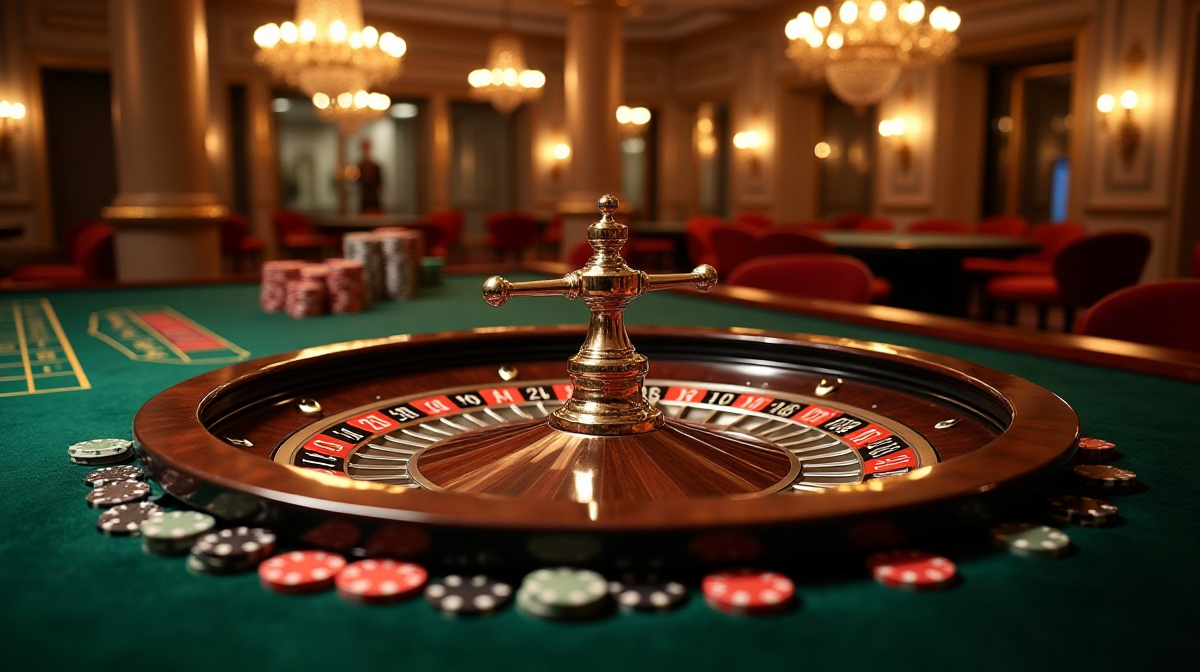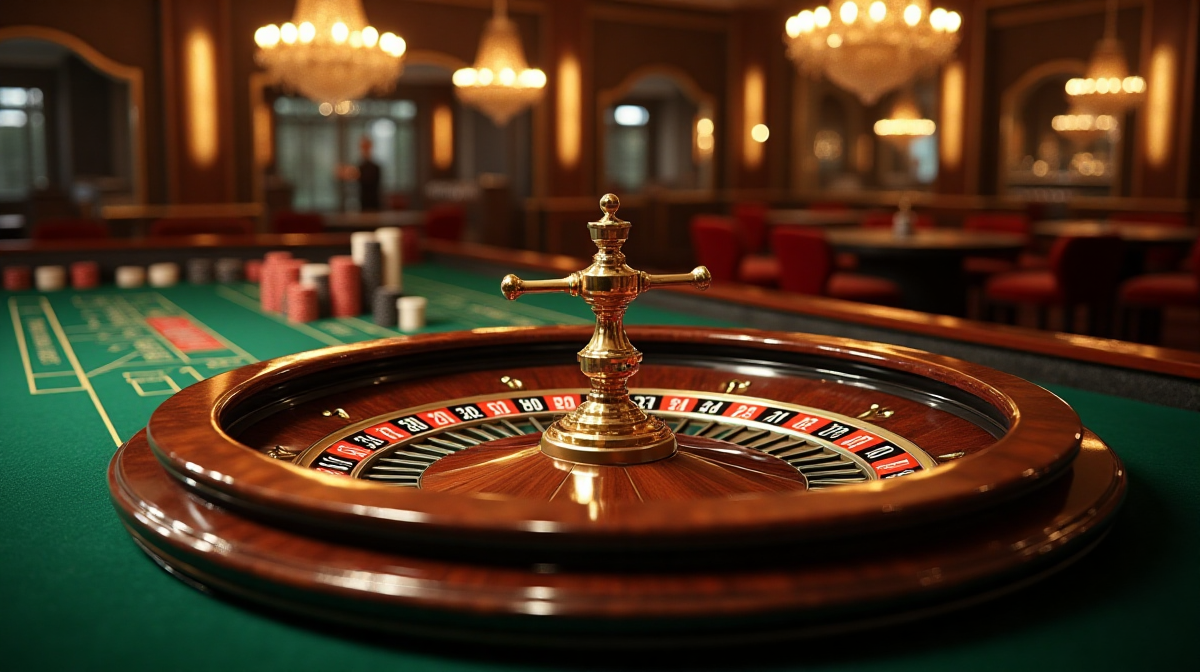Roulette Game: Beginner's Guide & Strategy
Introduction to Roulette
What is Roulette? - History & Origins
Roulette, a game of chance steeped in history, originates from 17th-century France. Derived from the French word meaning little wheel, it quickly gained popularity amongst French aristocracy. Its modern form, with the single zero, was developed by Blaise Pascal in an attempt to create a perpetual motion machine. Over time, roulette spread across Europe and eventually to the Americas, evolving into the variations we know today. Interestingly, the thrill of the spin and the potential for a significant win have captivated players for centuries, even influencing other forms of entertainment. The excitement of a potential IPL Win often mirrors the anticipation felt while waiting for the roulette ball to land.
Types of Roulette - European, American, French
There are three primary types of roulette: European, American, and French. European roulette features a wheel with 37 numbers (0-36), offering a lower house edge. American roulette has 38 numbers, including a ‘0’ and ‘00’, increasing the house edge. French roulette is similar to European, but includes the “La Partage” and “En Prison” rules, which can further reduce the house edge in certain scenarios. The variation chosen can significantly impact your odds.
The Roulette Wheel & Table Layout
Understanding Number & Color Divisions
The roulette wheel consists of numbered pockets, alternating between red and black. Numbers 1-36 are evenly distributed between these colors, while ‘0’ (and ‘00’ in American roulette) are green. This color arrangement is crucial for many betting strategies. Understanding the layout is the first step to grasping the ipl score and potential outcomes.
Inside & Outside Bets Explained
Bets are categorized as ‘inside’ or ‘outside’. Inside bets are placed on specific numbers or small groups of numbers on the inner section of the table, offering higher payouts but lower odds. Outside bets are placed on larger groups like red/black or even/odd, providing lower payouts but higher probabilities of winning.
Basic Roulette Terminology
Familiarizing yourself with roulette terminology is essential. The ‘Croupier’ is the casino employee who operates the wheel and table. ‘La Partage’ (French roulette) returns half of your even-money bet if the ball lands on zero. ‘En Prison’ (French roulette) allows you to leave your even-money bet “in prison” until the next spin if zero lands. These rules can significantly impact your strategy.
Understanding Roulette Bets
Inside Bets: High Risk, High Reward
Straight Up
A bet on a single number. Highest payout, lowest probability.
Split Bet
A bet on two adjacent numbers.
Street Bet
A bet on a row of three numbers.
Corner/Square Bet
A bet on four numbers that form a square.
Six Line Bet
A bet on two adjacent rows of three numbers.
Outside Bets: Lower Risk, Lower Reward
Red or Black
A bet on the color of the winning number.
Even or Odd
A bet on whether the winning number is even or odd.
High or Low
A bet on whether the winning number will be between 1-18 or 19-36.
Dozens Bets
A bet on one of three groups of twelve numbers.
Column Bets
A bet on one of three vertical columns of twelve numbers.
Announced Bets – For experienced players
These are verbal bets made before the wheel spins, requiring a more advanced understanding of the table layout.
Roulette Odds & Payouts
Calculating Roulette Probabilities
House Edge - European vs. American Roulette
The house edge represents the casino's advantage. European roulette has a lower house edge (2.7%) than American roulette (5.26%) due to the presence of the additional '00' pocket. Understanding the house edge is crucial when considering your long-term profitability. The strategic element, much like navigating the complexities of how many ipl titles has rohit sharma won, requires careful calculation and assessment.
Payout Chart for Common Bets
Different bets offer different payouts. Straight up bets pay 35:1, while even-money bets (red/black, even/odd) pay 1:1.
Understanding Return to Player
RTP is the percentage of wagered money that is theoretically returned to players over time. Higher RTP percentages are generally more favorable.

Roulette Strategy - Beginner Level
The Martingale System - Pros & Cons
This system involves doubling your bet after each loss, aiming to recover all previous losses with a single win. While seemingly effective, it requires a large bankroll and can lead to rapid losses.
The Reverse Martingale System – Pros & Cons
This system involves doubling your bet after each win, capitalizing on winning streaks. Less risky than the Martingale, but relies on consistent wins.
D’Alembert System – Progression Strategy
This system involves increasing your bet by one unit after each loss and decreasing it by one unit after each win. A more conservative approach than the Martingale.
Fibonacci Sequence Strategy – Progression Strategy
This system uses the Fibonacci sequence (1, 1, 2, 3, 5, 8, 13…) to determine bet sizes, aiming for gradual profit.
Flat Betting – Safe & Conservative Approach
Betting the same amount on each spin. This minimizes risk but also limits potential profits.
The Importance of Bankroll Management
Setting a Budget
Determine a fixed amount of money you’re willing to lose and stick to it.
Knowing When to Stop
Walk away when you reach your win or loss limit. It’s easy to get caught up in the moment, but discipline is key. The allure of a quick win can be similar to the excitement surrounding a roulette game or a thrilling cricket match.
Advanced Roulette Strategies
James Bond Strategy
A complex betting pattern covering a significant portion of the table.
Labouchere System
A progressive betting system involving creating a sequence of numbers and adjusting bets based on wins and losses.
Visual Ballistics
Attempting to predict where the ball will land based on the wheel’s speed and the ball’s trajectory.
Understanding Wheel Bias
Identifying and exploiting imperfections in the roulette wheel.
Online Roulette vs. Land-Based Roulette
Advantages & Disadvantages of Online Roulette
Online roulette offers convenience and lower minimum bets, but lacks the social atmosphere of a land-based casino.
Choosing a Reliable Online Casino
Licensing & Regulation
Ensure the casino is licensed and regulated by a reputable authority.
Reputation & User Reviews
Check online reviews and ratings before depositing funds.
Software Providers
Look for casinos that use reputable software providers.
Responsible Gambling
Setting Limits
Most online casinos allow you to set deposit, loss, and time limits.
Recognizing Problem Gambling
Be aware of the signs of problem gambling, such as chasing losses and neglecting responsibilities.
Resources for Gambling Addiction Help
Numerous resources are available for those struggling with gambling addiction.

Conclusion
Recap of Key Takeaways
Roulette is a game of chance with various betting options and strategies. Understanding the rules, odds, and risks is crucial for responsible gameplay. It's important to remember that, unlike a calculated ipl win, roulette relies heavily on luck.
Final Thoughts on Playing Roulette
Roulette can be an enjoyable and entertaining game when played responsibly. However, it’s vital to approach it as a form of entertainment, not a guaranteed source of income. Just as some find entertainment in seemingly random events like luna roulette porn, roulette offers a unique form of excitement, but should be approached with caution and awareness.


